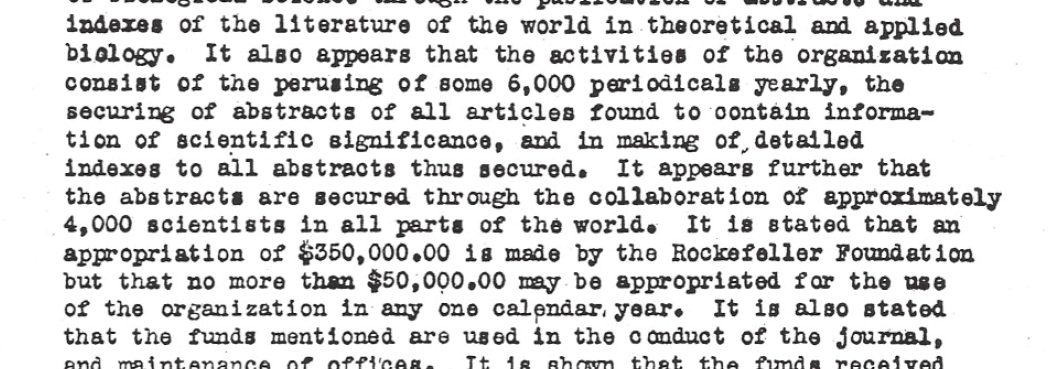It’s old news but good news: In November 1924, the Rockefeller Foundation awarded a grant for $375,000 over ten years to the fledgling journal, Biological Abstracts. Biological Abstracts was to be the first major American journal in the United States to comprehensively provide abstracts for the biological sciences. By 1935, the Rockefeller Foundation had granted $723,000 to the journal – that’s over $12 million in today’s dollars! Biological Abstracts evolved into the non-profit company BIOSIS, which was purchased by Thomson Scientific in 2004. The non-profit entity of Biological Abstracts and the proceeds from this sale would become the JRS Biodiversity Foundation. Today, the foundation continues the tradition of creating access to biological information and science.
The JRS Biodiversity Foundation owes its existence to the innovation of the Rockefeller Foundation. Aside from the initial funding they provided so many years ago, Rockefeller has helped to create the model for modern strategic philanthropies. Fostering Innovative solutions to society’s social, scientific, and economic problems has been one the hallmarks of private U.S. foundations. The current JRS request for proposals for innovations in biodiversity informatics and Capacity-building aims to nurture emergent ideas that can enhance biodiversity information for the sustainability of life on earth. We hope that some of the projects that we fund in this era will create a lasting legacy for the biological sciences and conservation.

